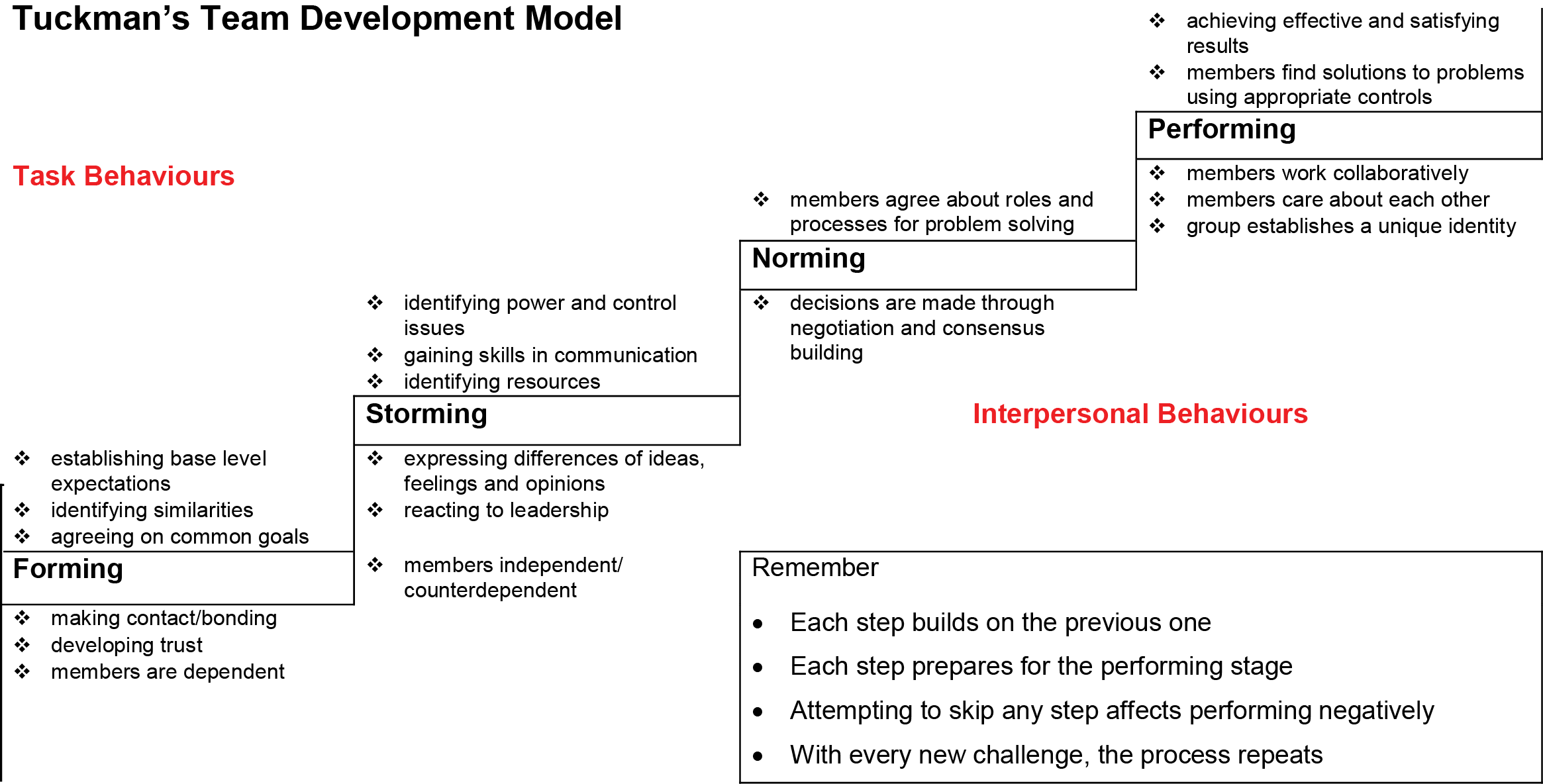Understand the Stages of Team Development
Tuckman (1965) identified a series of stages that teams go through in their journey together.
- Forming: The team is newly developing. The team works to form expectations and to develop trust.
- Storming: The newly formed team struggles with power and control issues, expressing differences of opinion. At this stage, the team may wonder how it will move beyond these tensions. It is helpful to realize that this is a normal stage of team development, and if the team perseveres and maintains its commitment to the task and each other (as outlined in the team charter), the stage will pass.
- Norming: Members agree on processes for working together, and can make decisions through negotiation and consensus.
- Performing: The team is working together collaboratively to achieve results. The team shares in a common identity.
- Adjourning: The team finishes its task and celebrates its successes.

Now that you have reviewed the ways that a team can move on in their development, apply your knowledge to team dilemmas in the quiz below.
Reference: Tuckman, B.W. (1965) ‘Developmental sequence in small groups’, Psychological Bulletin, 63, 384-399. Reprinted in Group Facilitation: A Research and Applications Journal ,Number 3, Spring 2001
